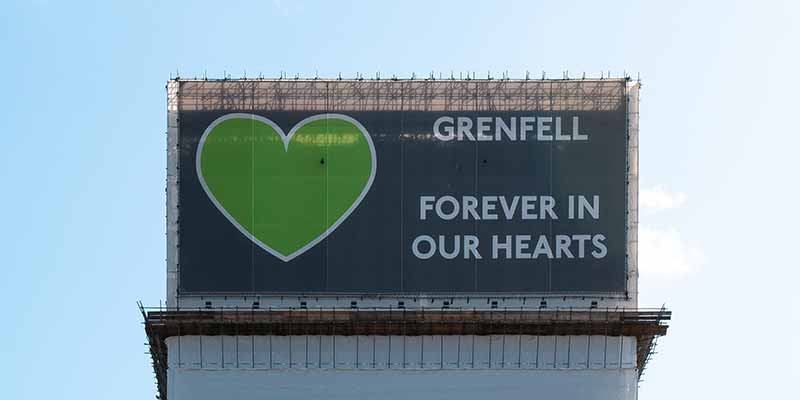
How does God feel about the Grenfell tower disaster?
How does God feel about the Grenfell Tower disaster?
A few days after 9/11, I heard a Christian preacher describe the terrorist attack on the World Trade Centre as a punishment from God.
I heard something similar said of the 2004 Indian Ocean Tsunami. One particularly graceless American preacher called it a punishment on Sweden for passing laws promoting same-sex marriage (with 550 deaths, Sweden suffered more than any other Western nation in the disaster, which presumably means the other 230,000+ people killed were just collateral damage).
Humans are inquisitive people. When disaster strikes, we’re hungry to know “Why?” So I won’t be surprised if in the next few weeks I hear someone trying to satisfy that hunger by suggesting the fire was a punishment from God for the sins of “X” (where X is whichever group they hate most). But was it a punishment from God? Are these preachers right? Does God arrange lurid disasters to punish individual sins?
Let me say straight away, God did not destroy the Grenfell Tower to punish the residents. I’m confident of this because of two incidents in the life of Jesus that tell us how God feels about disasters like Grenfell Tower.
The first incident is a conversation Jesus had about two tragedies that had happened in Israel.
- Some pilgrims from Galilee were offering sacrifice in the Temple and for reasons unknown, the Roman governor Pontius Pilate had them executed in a particularly sacrilegious and offensive way (Luke 13:1).
- a tower in the Jerusalem suburb of Siloam, collapsed killing 18 people (Luke 13:4).
Jesus is asked the same question about both tragedies: are the victims more wicked than other people, and therefore being punished for their sin? Is this a punishment from God?
And Jesus answers
I tell you No!”
He’s so emphatic about it, because he wants us to understand that people who fall victim to tragedies, whether they’re caused by human evil or a natural disaster, are not victim of some special punishment from God.
So how does God feel about Grenfell? To answer that, let’s look at our second incident from Jesus’ life, which also happened in a Jerusalem suburb, this time Bethany, in the aftermath of the sudden death of one of Jesus’ friends, Lazarus.
John the gospel writer records how as Jesus arrives at the funeral, he sees the tears of Lazarus’ sister Mary and of the other mourners, and:
was deeply moved in spirit and troubled.
‘Where have you laid him?’ he asked.
‘Come and see, Lord,’ they replied. Jesus wept.” (John 11:33-35)
“Jesus wept” is the shortest verse in the Bible, yet I hope you can grasp just how significant those two words are. God wept at the grave of his friend Lazarus. He understands how precious human life is. He understands how tragic it is when lives are lost. He understands how we feel, and he weeps with us.
That’s how God feels about Grenfell too. He weeps, just as he weeps with those mourning the victims of the Borough Market stabbing and the Manchester Bombing. He weeps over the many Muslims killed in the Quetta bombing in Pakistan. He weeps over the slaughter of Coptic Christian pilgrims in Egypt. God weeps over all human death. One day he’ll weep over my death, and yours.
That’s why in our first incident, Jesus turns the crowd’s attention from the disaster back to their own lives, by saying,
But unless you repent, you too will all perish.”
His point is that we’ll all die, and incidents like Grenfell or Siloam are an uncomfortable reminder that death can be so sudden that we’ll have no time to wrestle with life’s big theological questions before it claims us. Better to think about who you are trusting for eternity now! Is your hope for the future in the loving God revealed by Jesus, who will weep over your death? Or is it in something else altogether: perhaps that vengeful God who doesn’t care about the collateral damage; or even just in blind chance?
However you answer that question, I hope your thoughts and prayers will be with those so affected by the disaster: pray for those who mourn, for those who have lost their homes and possessions, and for those investigating the fire, who in the face of enormous public scrutiny and finger-pointing, will be charged with finding a human answer to the question “Why?”
—
Financial donations to help the survivors of the Grenfell fire can be sent to:
- the Evening Standard newspaper’s Dispossessed Fund (run through the charity, The London Community Foundation), or
- The Kensington and Chelsea Foundation